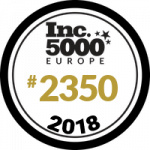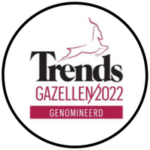Summary In the contemporary business environment, digital procurement is becoming increasingly popular and sought after by businesses around the world. The relationships …
What are the future trends in procurement management systems?
Let’s delve into the future trends that are shaping the development of management systems for procurement.
How has technological change affected procurement management systems?
The pace of technological change has accelerated dramatically in recent years and has made significant strides in procurement, reshaping industries and redefining business processes. This rapid technological evolution has had a profound impact, transforming traditional procurement methods into more dynamic, efficient, and data-driven systems.
Automation and efficiency
Technology has automated many routine and monotonous procurement tasks such as purchase orders, invoicing and data entry in warehouses. This automation has brought an end to human error and allowed stakeholders to shift their focus toward more strategic business activities like supplier management and contract negotiations.
Artificial intelligence and machine learning
AI and machine learning technologies can process large amounts of data and identify trends, predict demand, and analyse what will guide the purchasing and sourcing decisions. AI-driven analytics gives firms a platform to optimise the buying and sourcing processes, reduce costs and enhance relationships with their suppliers.
Enhanced transparency and security
Blockchains have made it possible to obtain a new level of transparency and security in procurement processes. Blockchain ensures an accurate record of transactions and reduces the risk of fraud while ensuring data authenticity. This integration builds trust and credibility with stakeholders and lays the foundation for loyalty.
Integration and connectivity
Procurement management software integrates with other enterprise applications such as enterprise resource planning and customer relationship management systems, enables data sharing from one place to another, and also encourages cross-functional collaboration that results in the formation of more coherent business processes.
Sustainability and compliance
Sustainability and compliance alike have been influenced by technological development in procurement. With automated analytics and data traceability, companies can establish ethical processes. This makes it easy for companies to comply with regulations and satisfy stakeholders’ demand to be socially responsible businesses.
Customisation and user experience
Procurement technologies play a role in improving user experience with user-friendly and centralised systems. The procurement management systems of today are much easier to use and allow stakeholders to tailor workflows and allocate resources and finances as pre-planned in workflows. This results in better decision-making.
Technological change has made procurement management software more efficient, visible, transparent, and secure—enabling organisations to adopt more sustainable practices, ensure regulatory compliance, and create a more collaborative environment.
What are the key trends in procurement management systems?
Procurement is undergoing significant transformations, reshaping the way businesses acquire resources. The critical drivers changing the scope and ability of procurement systems are technological advancements and globalisation, each influencing procurement practices and strategies.
Technological advancements
Procurement systems owe their development to the major role that technology plays by simplifying processes, enhancing accuracy, and making it possible to analyse key data in business supply chains. Some of the key technologies transforming procurement processes today are:
AI and machine learning
Machine learning and AI are transforming procurement by eliminating mundane workflow processes, forecasting demand, and providing actionable analytics. They give procurement professionals the ability to make data-driven decisions, eliminate human errors, and apply best practices in purchasing. AI is capable of analysing large chunks of data in search of trends and patterns which result in better choice of suppliers and positions.
Robotic process automation (RPA)
Robotic process automation performs repetitive mundane jobs such as invoice processing, purchase order creation and the entry of data which leads to an elimination of human error and an increase in efficiency. Instead of getting bogged down in lower-level tasks like supplier search and selection, procurement teams will be able to concentrate on more strategic aspects of their jobs, such as managing suppliers and optimising costs.
Blockchain technology
Blockchain technology introduces greater centralisation of procurement functions, transparency, visibility and security into procurement management systems with its vast immutable ledger—ensuring that transactions are secure and traceable. This reduces the risk of fraud and theft in sourcing processes. Smart contracts and negotiations powered by blockchain can automate contract execution, further streamlining procurement processes.
Cloud-based solutions
Cloud technology has signalled the ushering in of more accessible and flexible procurement systems. Cloud-based platforms allow flexibility, openness, and broader options for collaboration, increasing communication potential with overall stakeholders, along with efficiency and accuracy. This scalability makes it possible for enterprises to be resilient with fluctuating procurement challenges without a massive lifecycle of infrastructures.
Globalisation and supply chain complexity
Globalisation has led to increasingly complex supply chains, with companies sourcing from a diverse range of suppliers across the globe. This complexity presents new challenges and requires more advanced procurement systems to manage risks and ensure compliance.
Complex global supply chains
Companies expanding their sourcing networks and procurement systems must handle more complex logistics, regulatory compliance, and cultural differences. This complexity necessitates advanced procurement tools that can track global transactions, monitor compliance, and manage risks effectively.
Regulatory challenges
Globalisation comes with several schemes of regulations and trade agreements that impact procurement management practices. Procurement management systems must adapt to these varying rules and regulations that ensure compliance. This requires advanced and thorough analytics and tracking capabilities.
Supply chain resilience and risk management
The global nature of supply chains introduces new risks, from geopolitical instability to supply disruptions. Systems must be capable of identifying and mitigating risks to ensure business continuity. Technologies like AI and big data analytics play a crucial role in enhancing supply chain resilience.
Managing diverse supplier relationships
Procurement teams need to maintain relationships with suppliers from different cultures and regions, which requires an understanding of local business practices, customs, and legal requirements. Procurement management systems play a crucial role in helping organisations navigate these diverse relationships.
Embark on a journey toward procurement excellence with Kronos Group
With Kronos Group, your organisation can adopt innovation along with strategic expertise. Step into the future of procurement as we redefine procurement consulting services and lead the way in digital transformation.
We focus on propelling businesses forward by embracing technology and digital strategies. Our mission is to evaluate, advise, and implement cutting-edge solutions that optimise your procurement processes and elevate your operations to new heights.
Connect with Kronos Group to reimagine your procurement approach and set your business on a path to success.

Fighting the effects of inflation with sourcing and procurement consultants
Stay up-to-date on the latest insights on procurement, finance, and project management.
Summary Strategic procurement has become a necessity in today’s business world and organisations try to remain competitive. Having the right procurement strategies …
Summary The world of consulting has been undergoing a massive transformation and management consulting jobs are experiencing the impacts of these changes. …
FAQ
Training needs depend on the system’s complexity and user roles but include system-based navigation, process workflows, and compliance requirements.
They automate processes, reduce manual errors, improve spend analysis, and enable supplier negotiations, leading to significant cost savings in the long run.
Factors to consider when choosing a procurement system include scalability, integration capabilities, user-friendliness, vendor support, security features, and cost-effectiveness.














